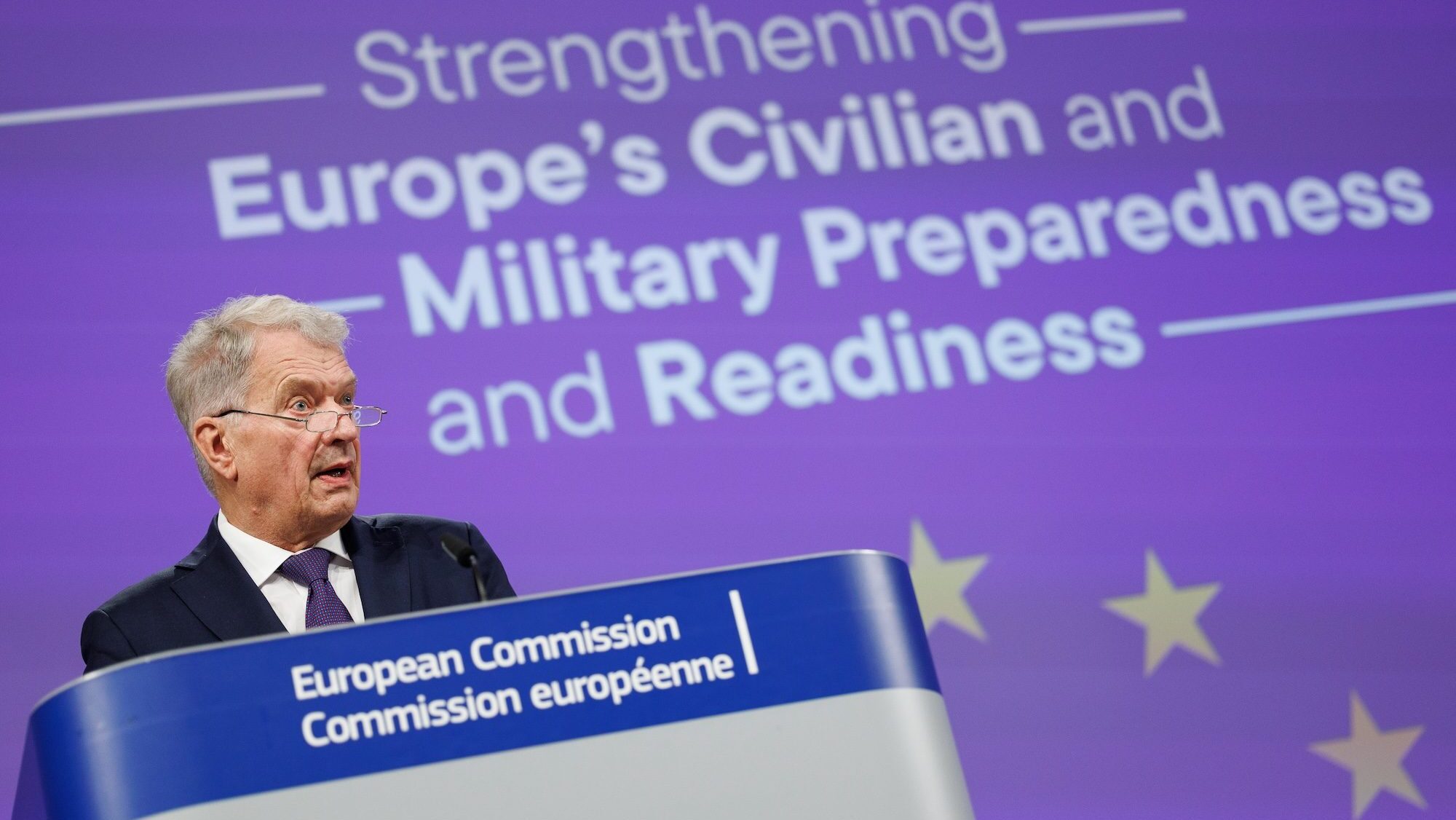
Former Finnish President Sauli Niinistö presenting his report.
Photo: Christophe Licoppe © European Union, 2024 – EC Audiovisual Service
The European Union needs to set up its own spy agency that would be in charge of coordinating intelligence sharing among member states to boost the bloc’s readiness for war and crises, argued Finland’s former president, Sauli Niinistö, in a report unveiled on Wednesday, October 30th.
If enacted, the proposal would further extend the power and competencies of Brussels, most likely at the expense of member states’ sovereignty.
Similarly to the Draghi report on how to fix the EU’s competitiveness crisis, the document was ordered by the European Commission chief Ursula von der Leyen back in March to serve as a blueprint for the incoming European Commission on how to raise Europe’s preparedness for future military conflict.
Among his 80 recommendations for strengthening both military and civil defense readiness, Niinistö calls on Brussels to develop a “fully fledged intelligence cooperation service at the EU level that can serve both the strategic and operational needs,” as well as an additional “anti-sabotage network” to protect critical infrastructure.
According to Niinistö, centralized measures taken at the EU level are key not only to effectively combat cross-border operations of foreign spy networks that are impacting multiple member states, but also to “enhance counter espionage work in EU institutions,” he said at Wednesday’s press conference while presenting his report.
It’s well-known in the EU bubble that Brussels has long been a playground of intelligence agencies from around the world. Foreign agents have likely infiltrated all levels of the hundreds of international organizations and embassies, including the ranks of some 32,000 Commission and 8,000 European Parliament staff.
The former president drew on the example of the Five Eyes—the intelligence-sharing network made up of ‘Anglo-Saxon’ countries—and said that EU member states would need something similar between them, coordinated from Brussels.
“We all know that intelligence gathering is primarily the responsibility of member states,” said von der Leyen, standing alongside Niinistö. “We should build on improving the flow of information, information gathering, and intelligence gathering.”
“We need to trust each other,” the ex-president added.
But the real question is whether EU countries can trust Brussels to act as the coordinator of a shared intelligence structure. It’s not only a question of competence but potentially much more, as Brussels could use the new instruments to spy on member states—particularly those it defames as having governments in bed with Putin. After all we’ve seen lately, it’s not at all unthinkable.
The report also had recommendations in numerous other areas, most of which take the “safer together” approach and call for deeper integration of EU structures and policies, essentially giving more power to Brussels.
The report called for an ‘EU Preparedness Law’ under which the Commission would set “principles, standards, and targets” for all areas of defense cooperation, from arms manufacturing to cybersecurity.
While not explicitly arguing for reintroducing conscription, Niinistö also called for programs that encourage more civilians to join Europe’s armed forces.
The report will serve as the basis of a ‘white paper’ on the EU’s long-term defense strategy that will be unveiled sometime next spring, and possibly turned into legislation throughout the next term.
